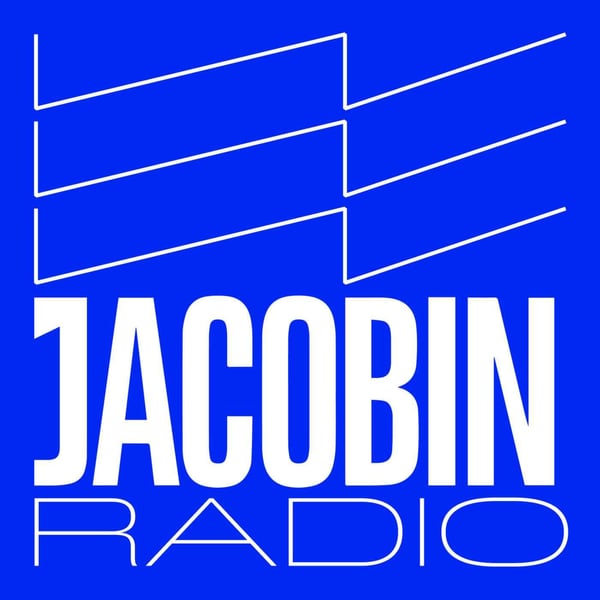The Vast Majority: Workers in the 1970s Wanted Unions
Jacobin Radio
Jacobin
4.7 • 1.5K Ratings
🗓️ 2 December 2020
⏱️ 47 minutes
🧾️ Download transcript
Summary
Hosted on Acast. See acast.com/privacy for more information.
Transcript
Click on a timestamp to play from that location
| 0:00.0 | Welcome to another episode of The Vast Majority. I'm Jackman Deputy Editor Micah Eutricht. |
| 0:08.0 | One of the best books I have read on the Labor Movement recently is knocking on labor's door, union |
| 0:15.1 | organizing in the 1970s and the roots of a new economic divide by Lane Windham. |
| 0:21.2 | It is great on a number of fronts. I mean, first of all, if you don't really have a sense of like what unions are and do, I mean if you're like, okay, unions are good, I I know that but beyond that you're not really |
| 0:34.7 | Sure much about the details of unions and why they're important I would recommend this book highly for the portrait that it paints of all of that and not just on the sort of |
| 0:46.2 | theoretical level but also explains all of it through case studies. The book focuses on |
| 0:50.9 | the 1970s which is often talked about as this era in which the working |
| 0:56.6 | class of America moved to the right that set the stage for Ronald Reagan, |
| 1:02.8 | that in some ways is the world that we're still living with today. |
| 1:05.6 | But Wyndham argues that the picture of that period |
| 1:10.4 | is actually a bit more complicated and talks about how there was not a kind of like as we discuss in our conversation today a |
| 1:18.7 | Culturalist shift by workers right word that somehow had them decide that they didn't need unions |
| 1:26.5 | there anymore in fact it was a period in which enormous numbers of new workers |
| 1:31.3 | especially black workers, female workers, were entering the workplace |
| 1:36.8 | for the first time and just like the white workers of several decades previous decided that they needed a union in order |
| 1:47.0 | to gain access to the meager social welfare state that we have in the United States through |
| 1:54.5 | those unions and they often fought really noble and heroic battles in order to |
| 2:01.9 | try to win unions on the job. |
| 2:05.0 | They did so in enormous numbers, as Wyndham notes in this book, |
| 2:09.0 | but what stopped them was not any kind of lack of a desire for getting unions but in fact the |
| 2:16.9 | employer pushback that really began in that era. Lane Windham is Associate Director of Georgetown University's Kalmanovitz |
| 2:26.4 | Initiative for Labor and the Working Poor. Lane, welcome to the vast majority. I'm thrilled to be here with you. So why don't you just start with the basic premise of your book knocking on Labor's door, the time period it covers, what the ground, total ground that it covers, |
... |
Please login to see the full transcript.
Disclaimer: The podcast and artwork embedded on this page are from Jacobin, and are the property of its owner and not affiliated with or endorsed by Tapesearch.
Generated transcripts are the property of Jacobin and are distributed freely under the Fair Use doctrine. Transcripts generated by Tapesearch are not guaranteed to be accurate.
Copyright © Tapesearch 2025.

